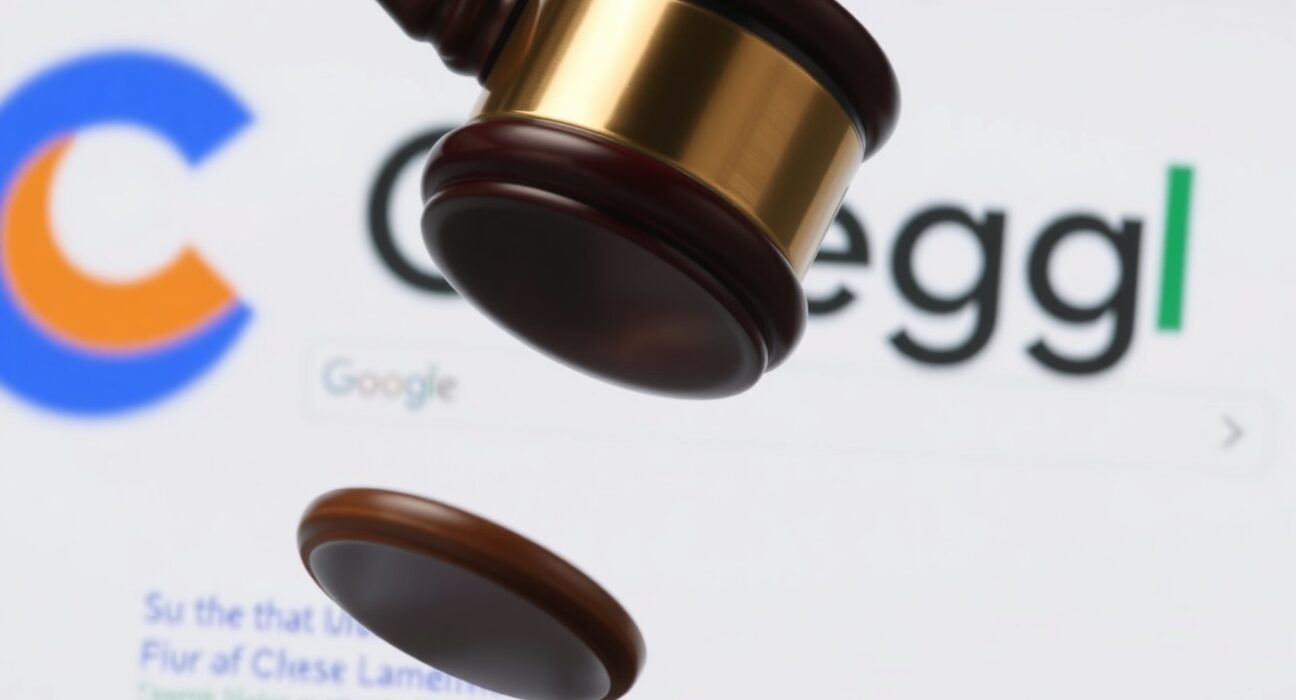In a stunning move that has sent ripples across the tech and education sectors, Edtech giant Chegg has initiated legal proceedings against Google. The crux of the matter? Google’s increasingly prevalent AI-powered search summaries, which Chegg argues are significantly impacting their web traffic and, consequently, their revenue streams. For crypto enthusiasts and investors closely watching tech trends, this lawsuit highlights the growing tension between established content providers and the evolving landscape of AI-driven search.
Unpacking the Chegg vs. Google Lawsuit over AI Search Summaries
The lawsuit, lodged in the U.S. District Court for the District of Columbia, is a direct challenge to Google’s alleged monopolistic practices. Chegg’s অভিযোগ is multi-faceted, accusing Google of:
- Unfair Competition: Specifically, Chegg points to ‘reciprocal dealing,’ ‘monopoly maintenance,’ and ‘unjust enrichment’ as key components of Google’s anti-competitive behavior.
- Monopoly Abuse: Chegg claims Google leverages its dominant position in search to essentially compel companies to provide content to be indexed and featured in search results. This, according to Chegg, allows Google to unfairly benefit from third-party intellectual property (IP) without equitable compensation or consideration for the impact on the content creators themselves.
- Damage Claims: Chegg is not just seeking symbolic redress; the company is pursuing compensatory damages and a court injunction to halt Google’s “unlawful and unfair” practices. The financial implications for both companies and the broader digital content ecosystem could be substantial.
Why is Chegg Suing Over Google’s AI Search Summaries?
The heart of Chegg’s grievance lies in the nature of Google’s AI Search Summaries. These summaries, designed to provide quick answers directly within the search results page, are drawn from various sources across the web. While intended to enhance user experience, Chegg and other publishers argue that they inadvertently cannibalize traffic to the original content sources. Here’s a breakdown of the key issues:
| Issue | Description | Potential Impact |
|---|---|---|
| Traffic Reduction | AI summaries may answer user queries directly on Google, reducing the need to click through to source websites like Chegg. | Significant drop in website visits and user engagement for content providers. |
| Revenue Impact | Lower traffic directly translates to reduced advertising revenue, subscription sign-ups, and overall business performance for companies reliant on web traffic. | Financial losses and potential business model disruption for online publishers and Edtech platforms. |
| Content Monetization Challenges | If users get answers directly from summaries, the incentive to access and pay for premium content on sites like Chegg diminishes. | Challenges in sustaining business models based on content access and subscription in the age of AI-driven search. |
The Broader Implications for the Edtech Industry and Beyond
Chegg’s lawsuit is not an isolated incident. It’s part of a growing chorus of publishers voicing concerns about the impact of Google AI and similar technologies on their businesses. News outlets and content creators across various sectors are reporting a noticeable dip in traffic attributed to these AI summaries. This legal challenge could set a precedent with far-reaching consequences:
- For the Edtech Sector: Companies like Chegg, which rely heavily on online traffic for student engagement and subscription services, are particularly vulnerable. The outcome of this lawsuit could influence how Edtech platforms adapt their strategies in an AI-first search environment.
- For News Publishers: The news industry, already grappling with digital transformation, faces further disruption if AI summaries become the primary mode of information consumption. This lawsuit might compel Google and other search engines to reconsider their approach to content aggregation and attribution.
- For the Future of the Web: At a fundamental level, this case questions the balance between improving search engine functionality through AI and ensuring a sustainable ecosystem for content creators who fuel the internet with information and knowledge. The concept of Search Engine Monopoly and its responsible use is now under intense scrutiny.
What’s Next in this Legal Battle?
As of now, Google has been contacted for comment, and the response is pending. The legal proceedings are in their initial stages, and it remains to be seen how Google will defend against these accusations. Key aspects to watch out for include:
- Google’s Response: How will Google address Chegg’s claims of anti-competitive behavior and the alleged negative impact of AI Search Summaries on content providers?
- Court’s Decision: The court’s ruling will be pivotal. It could either validate Chegg’s concerns and force Google to modify its AI search practices or side with Google, potentially emboldening further AI integration in search.
- Industry Reactions: Expect other publishers and content platforms to closely monitor this case. Their reactions and potential solidarity with Chegg could amplify the pressure on Google and influence the direction of the legal battle.
Conclusion: A Pivotal Moment for AI and Online Content
Chegg’s lawsuit against Google is more than just a corporate dispute; it’s a landmark case that could redefine the relationship between AI-driven search engines and the vast landscape of online content creators. For the cryptocurrency world and the broader tech community, this legal showdown serves as a crucial reminder of the profound implications of rapidly evolving AI technologies and the critical need for fair practices in the digital age. The outcome of this Google Lawsuit will undoubtedly shape the future of content creation, distribution, and consumption online.
To learn more about the latest AI market trends, explore our article on key developments shaping AI features.
Disclaimer: The information provided is not trading advice, Bitcoinworld.co.in holds no liability for any investments made based on the information provided on this page. We strongly recommend independent research and/or consultation with a qualified professional before making any investment decisions.




